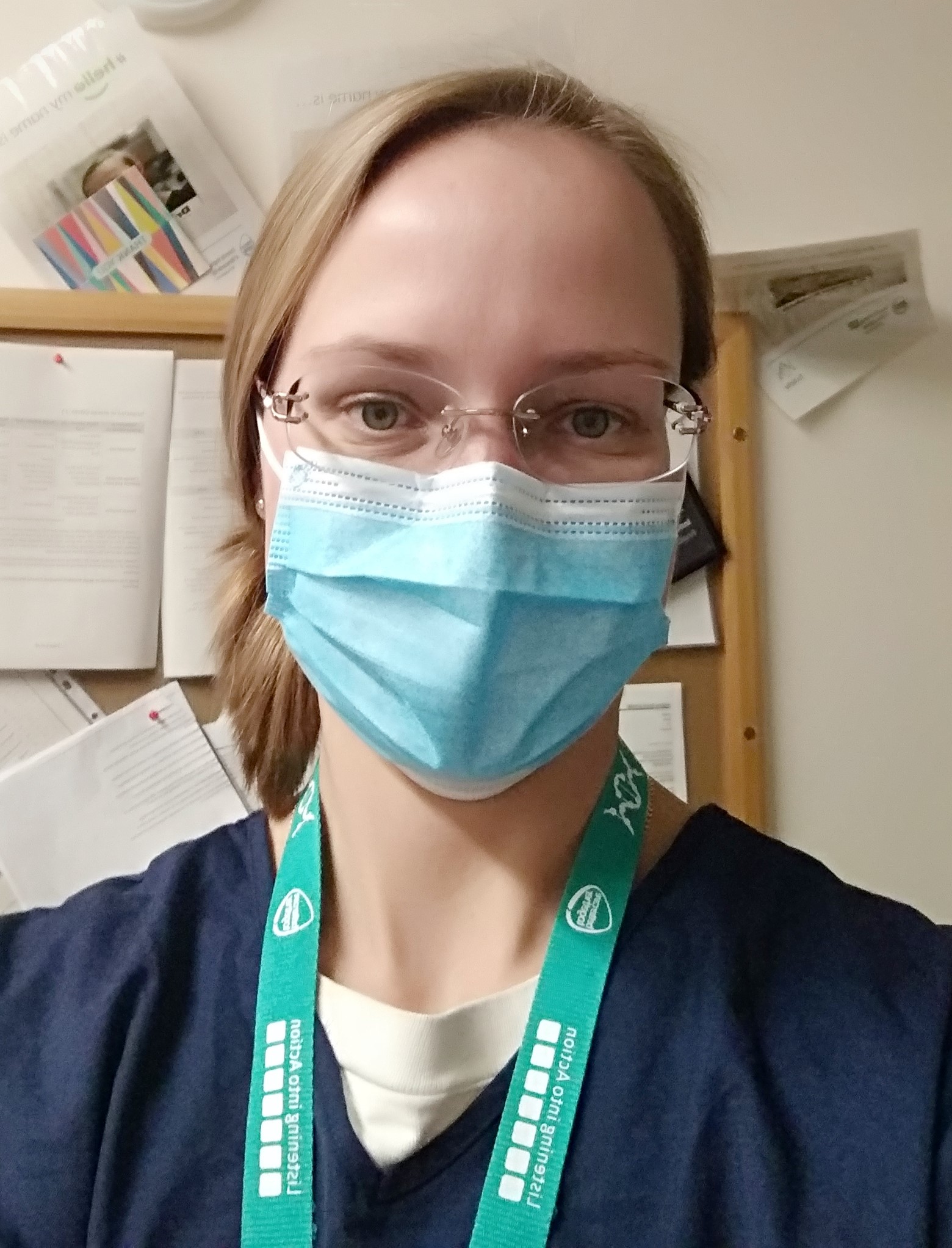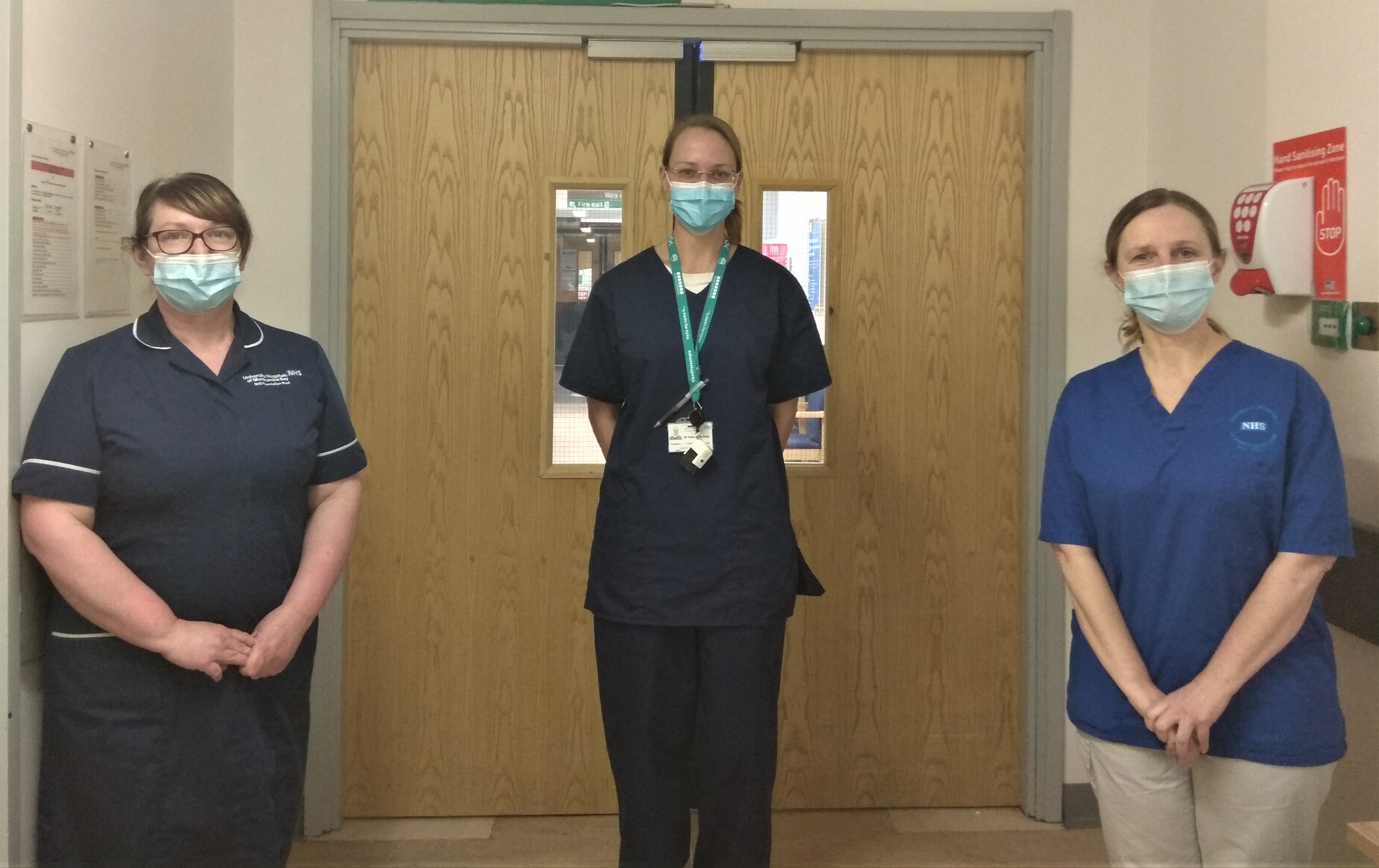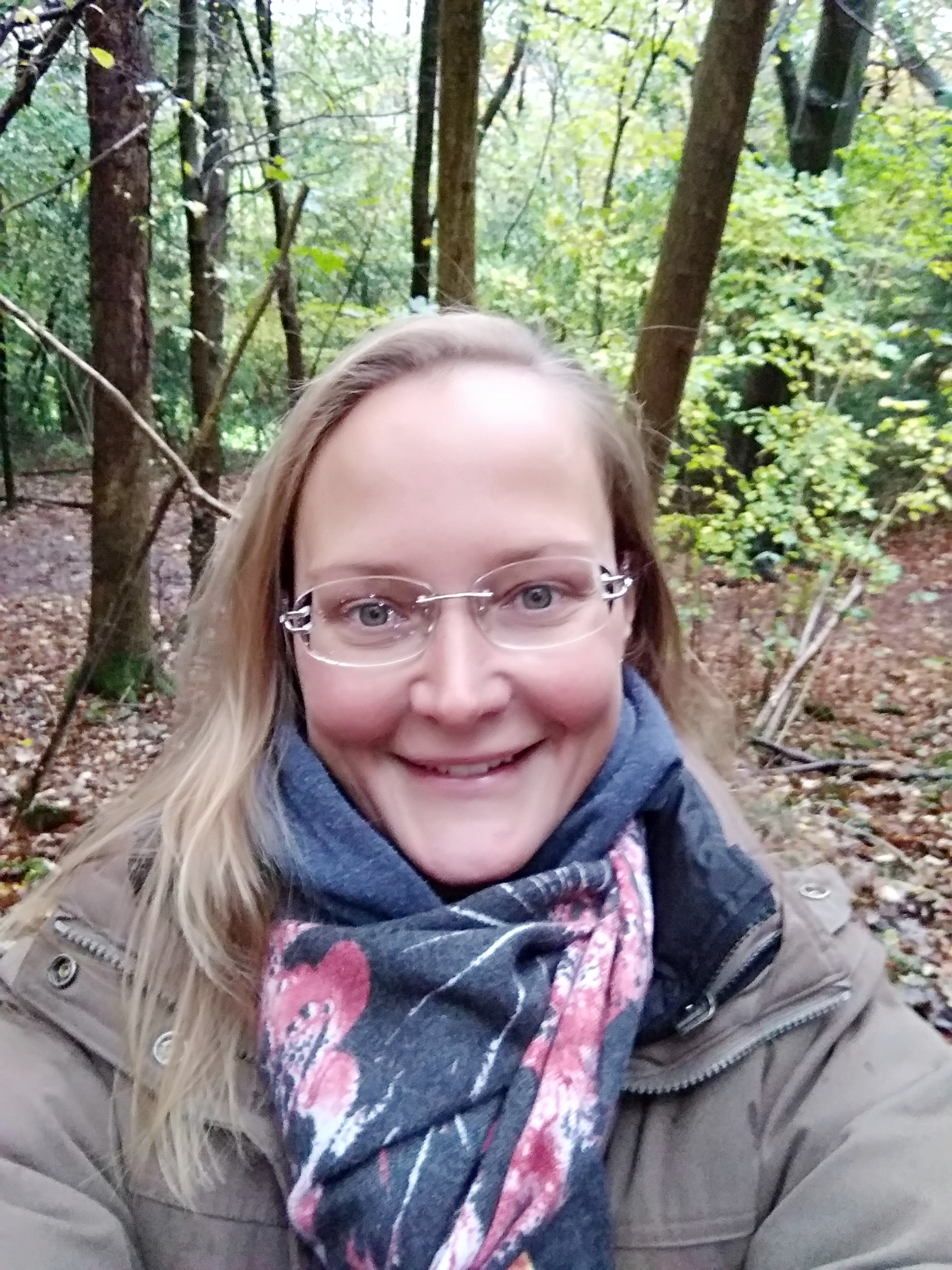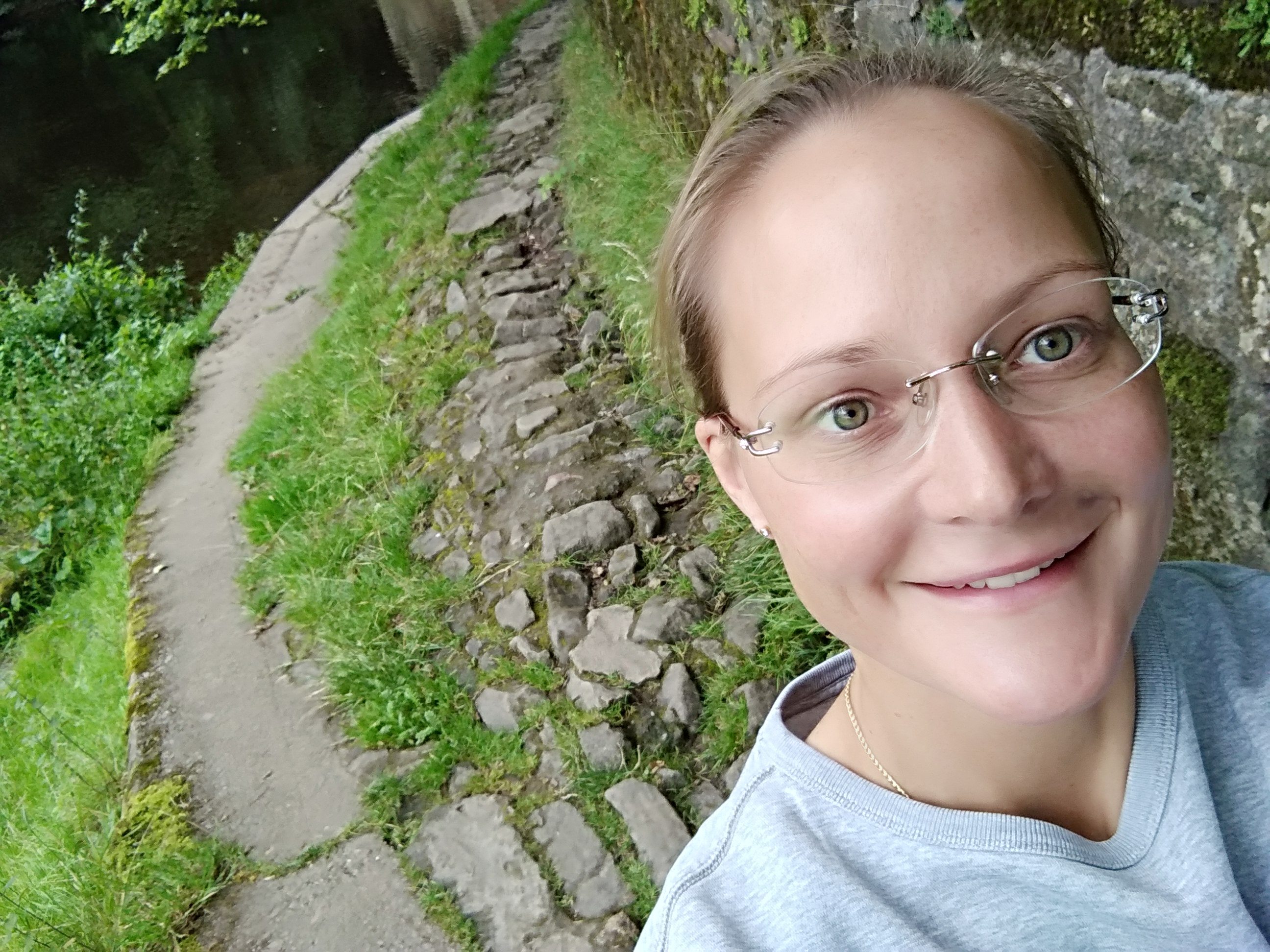 The Clinical Lead in Organ Donation at University Hospitals of Morecambe Bay NHS Foundation Trust (UHMBT) has been honoured for her dedication to organ donation and transplantation.
The Clinical Lead in Organ Donation at University Hospitals of Morecambe Bay NHS Foundation Trust (UHMBT) has been honoured for her dedication to organ donation and transplantation.
Dr Vera Gotz (pictured, left), who is also a Consultant in Acute and Intensive Care Medicine at UHMBT, is delighted to have been ‘Highly Commended Runner Up’ in the annual Rosie Neath Award for Outstanding Achievement in Organ Donation.
Dr Gotz is passionate about organ donation and has completely transformed the service at UHMBT in just three years. Through her skill and determination, she has significantly raised the profile of organ donation across the Trust.
Thanks to Dr Gotz, during the first and second wave of the COVID-19 pandemic, UHMBT successfully facilitated organ donation, which for a relatively small Trust amid a pandemic response, was an impressive achievement. The Trust had seven proceeding organ donors from January 2020 to December 2020 which led to at least 13 patients receiving life-saving transplants. In addition to this, a number of families gave consent for tissue donation.
Dr Gotz said: “I am overjoyed and humbled to be Highly Commended Runner Up in the Rosie Neath Award. It was a massive surprise; it was phenomenal! I was in an ‘Organ Donation Collaborative’ meeting and at the end I was named Highly Commended Runner Up. I was completely overwhelmed and chuffed. It was a delightful surprise.
“At the moment our service is gaining momentum; it’s all coming together. It’s a really beautiful part of my career. I am seeing the rewards of the previous three years and I want to continue this work as there is much more that we can achieve.”
The Rosie Neath Award is presented in memory of a courageous young woman from Blackpool who was both a transplant patient and an organ donor. Rosie was born with Cystic Fibrosis (CF) and had a double lung transplant. She was a truly inspirational young woman with a zest for life who actively supported the promotion of organ donation and transplantation.
 Rosie’s transplant was successful but a few years later the transplant failed due to rejection. When Rosie died at the age of just 29 on October 1, 2017, she then became an organ donor.
Rosie’s transplant was successful but a few years later the transplant failed due to rejection. When Rosie died at the age of just 29 on October 1, 2017, she then became an organ donor.
Dr Gotz said: “Rosie’s double lung transplant made a huge difference to her quality of life and to her joy in life.
“Rosie became an ambassador for organ donation and when she sadly died, she was able to help others by donating her organs. An incredible gift. Quite simply - organ donation saves lives.”
Dr Gotz said it is hugely important that people sign up to the national Organ Donation Register through NHS Blood and Transplant and that they make their family and friends aware of the fact that they wish to donate their organs. She said it is also important that the public know that transplants are still going ahead during the coronavirus (COVID-19) pandemic.
Organ donation services across the UK have been affected by the pandemic and many have had to postpone or reduce their service, but, where possible, transplant centres continue to facilitate transplants working within the current challenges aiming at providing lifesaving transplants.
Dr Gotz explained: “Obviously we have to keep the pandemic in mind and make sure that possible donors do not have COVID-19, however it’s important that the system remains open because there are many people waiting for life-saving or life-prolonging transplants.”
When Dr Gotz first took on the role of Clinical Lead for Organ Donation at UHMBT, the service was ripe for development as some key posts were open.
 Up until 2016 most NHS Trusts had their own Specialist Nurse for Organ Donation (SNOD). At that time the entire system of SNODs was reconfigured across England and smaller NHS Trusts no longer had embedded SNODs. This meant that when Dr Gotz became Clinical Lead in Organ Donation for UHMBT in 2018, she had to find her feet on her own. Around the same time the Chair of the Trust’s Organ Donation Committee stood down and Dr Gotz set about rebuilding the service.
Up until 2016 most NHS Trusts had their own Specialist Nurse for Organ Donation (SNOD). At that time the entire system of SNODs was reconfigured across England and smaller NHS Trusts no longer had embedded SNODs. This meant that when Dr Gotz became Clinical Lead in Organ Donation for UHMBT in 2018, she had to find her feet on her own. Around the same time the Chair of the Trust’s Organ Donation Committee stood down and Dr Gotz set about rebuilding the service.
Jill Stannard, a Non-Executive Trust Board Member, was appointed as the new Chair of the Organ Donation Committee at UHMBT.
The Trust’s main contact at NHS Blood and Transplant is Team Manager, Nicky Hargreaves, who is based in Manchester. There are still SNODs who visit both of the Trust’s ITUs for teaching purposes and completion of the potential donor audit.
Professor Laura Machin, Professor of Ethics at Lancaster University, is also on the Organ Donation Committee and the first committee meeting under the new structure was held in 2020.
The committee is working well and has been having important discussions about how strategies for organ donation are delivered at UHMBT, including how language barriers, religious beliefs and faith can influence decision making around organ donation. The committee is aiming to give presentations on organ donation in the future.
Only patients who die in specific circumstances can be considered for organ donation and SNODs will check to see if the person is on the Organ Donation Register. Consent for donation is sought through the next of kin.
Dr Gotz explained that in 2020 new legislation called ‘Deemed Consent’ or ‘Max and Keira’s Law’ was introduced which means that all adults in England are now considered to have agreed to be an organ donor when they die unless they have recorded a decision not to donate or are in one of the excluded groups.
This is commonly referred to as an ‘opt out’ system and patients still have a choice whether or not they wish to become a donor. The new law was named after Keira Ball, who died aged nine in 2017, and Max Johnson, now aged 12, who was saved by her heart.
 Dr Gotz said: “The Specialist Nurse for Organ Donation checks to see if a patient is on the Organ Donation Register. The patient may not have communicated their wishes to their family or next of kin. We have lots of discussions with family members and it is usually very well received. Many families see it as a positive decision to commit to go the way of organ donation.”
Dr Gotz said: “The Specialist Nurse for Organ Donation checks to see if a patient is on the Organ Donation Register. The patient may not have communicated their wishes to their family or next of kin. We have lots of discussions with family members and it is usually very well received. Many families see it as a positive decision to commit to go the way of organ donation.”
Dr Gotz and the team at UHMBT have also recently received the NHS Blood and Transplant ‘Learning from Excellence Award’ for best practice in organ donation at Furness General Hospital and the Royal Lancaster Infirmary.
Dr Gotz added: “The Learning from Excellence Award recognises best practice and it is great feedback for staff. It’s something very positive. This is an important part of advancing our Trust towards a ‘Gold Standard’.”
Nicky Hargreaves said: “When Dr Gotz took on the role of Clinical Lead in Organ Donation at UHMBT, donor numbers were minimal.
“Without many proceeding donors, it was difficult to show the positive aspects of organ donation to the staff at the Trust. Throughout that time Dr Gotz remained professional, committed and passionate about organ donation. She consistently maintained her enthusiasm for her role as Clinical Lead in Organ Donation.
“Working alongside Dr Gotz, the Trust has seen a complete turn-around in the last 12 months, including the appointment of a new Chair and reinvigoration of the Trust’s Organ Donation Committee, albeit online due to the COVID-19 restrictions.
“I am very much aware that this has been a team effort but having worked with many Clinical Leads for Organ Donation over the past 11 years, Dr Gotz, in my opinion, represents the role in its true sense. It is always a pleasure working with her and I think she is worthy of recognition.”
For more information on organ donation and how to register as a donor, please visit: www.organdonation.nhs.uk

